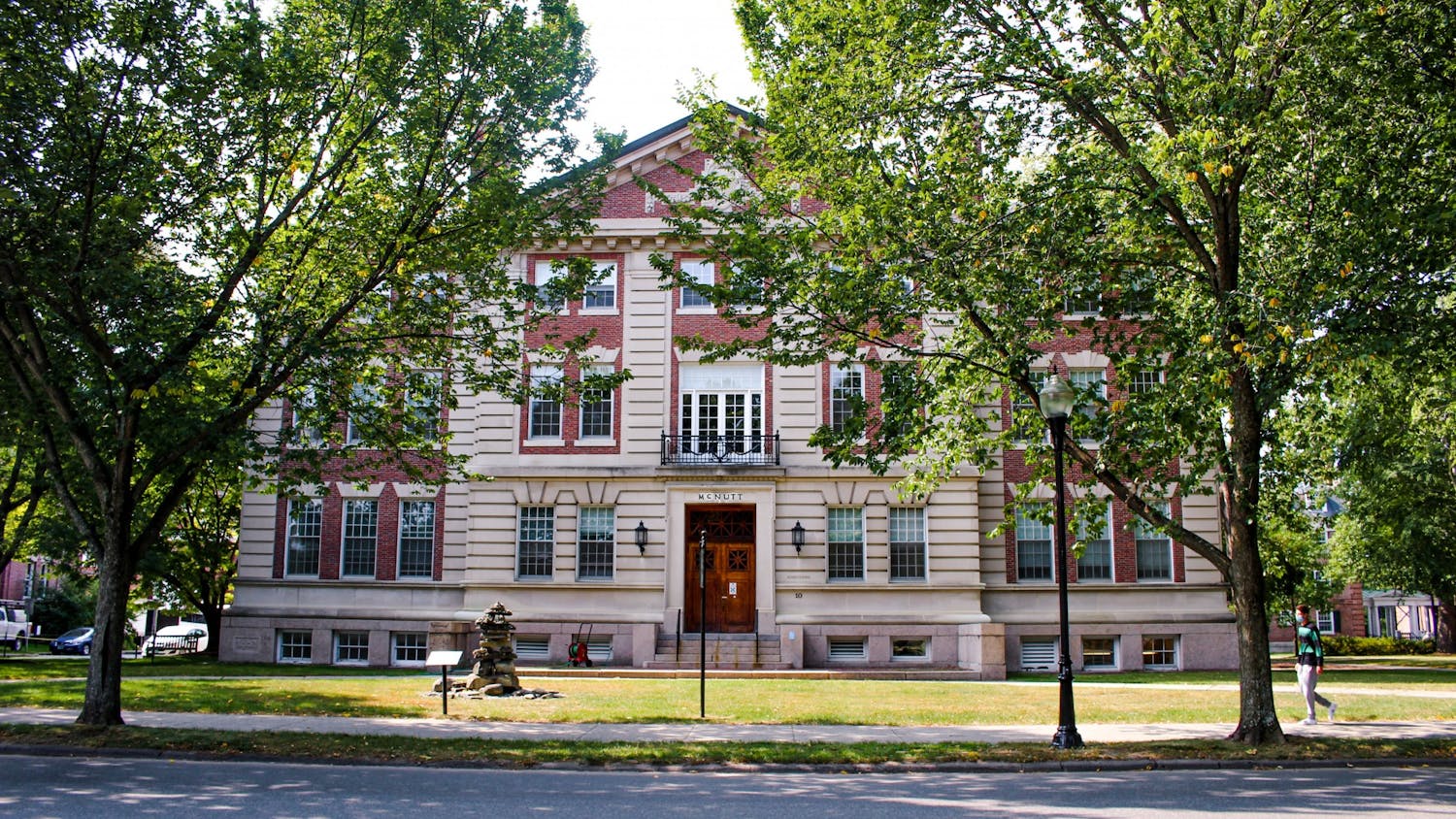More than 30 students and members of the Hanover community gathered last night in the Rockefeller Center for a slide-show presentation on Jews in Africa.
The speaker, Jay Sand, a self-described "freelance journalist/musician/traveler" originally from Harrisburg Penn., spent the past year and a half living with several Jewish communities in Africa. Today, he spends his time traveling to various college campuses, telling of his experiences with Judaism on the oft-overlooked continent through words, songs and photos.
Sand first became interested in the Jewish communities of Africa after a friend studying in Kenya wrote to him, requesting that Sand, a former member of a Jewish youth group, send him traditional Hebrew songs. The songs, Sand learned, were to be taught to members of a Jewish community in Uganda.
Although intrigued by the idea of the existence of Jews in Africa, Sand concentrated on other pursuits. Later on, however, after finding himself "in between projects with many open possibilities," Sand decided to venture to Africa to document the Jewish tribes that had sparked his curiosity two years ago.
Sand admitted that before beginning his journey, his perception of Africa was vastly different, having been shaped by various media influences.
His views changed drastically, however, after experiencing life on the continent first-hand.
"The only way you get to know a place," he said, "is by actually being there."
During his travels, Sand stayed in four countries -- Uganda, Ghana, Zimbabwe and South Africa, each the site of a Jewish community.
Although the tribes shared some of the same rituals -- in particular, those based on age-old Jewish tradition -- Sand found several differences between the communities, particularly in the sizes of their populations and their origins.
The Jewish community in Uganda -- which is composed of approximately 100 people -- began when a prominent Ugandan leader, frustrated by the actions of Christian British imperialists, decided to rebel by converting himself and his followers to Judaism.
In contrast, the Jewish community in South Africa, composed of over 80,000 people, holds to a strict doctrine declaring that they were always Jewish. The Lembas, as they refer to themselves, claim that their ancestors traveled south from Israel and settled in South Africa.
Recent DNA testing conducted on community members lends credence to this theory, with a significant portion of the Lemba people determined to have a genetic code found only in certain peoples of Jewish descent, Sand said.
Although Sand touched upon the histories of the tribes, the lecture focused more on their life-styles and the way in which they blend traditional African culture with Jewish practices.
Sand explained that many tribes -- long before officially declaring themselves as "Jewish" -- performed rituals and maintained standards of living similar to those mandated by Jewish doctrines, including performing circumcisions on newly-born males and maintaining strict diets.
Unlike Western Jews, most members of African Jewish communities lack electricity and reside in either large, open compounds or round huts. The majority engage in subsistence farming and live mostly in poverty, relying on outside sources to supply them with Torahs and other religious materials.
Nonetheless, according to Sand, African Jews throughout the continent, are generally a pleasant, enthusiastic bunch.
"They're really happy to be Jews," he said.
So happy, in fact, that Sand encountered one community leader who wrote a song, in his native language, of the joys of being Jewish.
Sand played the song on his guitar, convincing the audience to shout "Hallelujah!" in the appropriate places.
At the conclusion of the lecture, audience members were encouraged to peruse an array of African-made yarmulkes -- head coverings traditionally worn by Jewish males -- at the front of the room.
The presentation, sponsored by Hillel, will be followed by a discussion entitled "Intersections of Identity: What does it mean to be a Jew? To be Black? To be African?" taking place on Sunday in the Cutter/Shabazz lounge.



